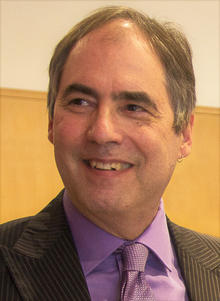SoAR 2020 - Postponed indefinitely
After consideration of the current situation around COVID-19, the SoAR 2020 Conference Planning Committee has chosen to indefinitely postpone this year's event. This decision is in alignment with the Public Health Agency of Canada's guidelines on risk assessments for mass gatherings, which specifically highlights increased risk for events that involve older adult populations. As researchers in the field of aging, we feel that holding a gathering where older adults typically attend would create unnecessary risk to the health and well-being of attendees, and we do not want to hold a SoAR event where our community partners are not engaged. We will continue to monitor developments and provide updated event details as they become available.
Thank-you for your understanding, and if you have any concerns or questions please do not hesitate to reach out to us. We hope to SoAR with you soon!
An interdisciplinary forum for student research

With a focus on aging research*, Symposium on Aging Research (SoAR) is a one-day meeting for engaging with student research beyond disciplinary and professional boundaries, and across areas of expertise. SoAR encourages students from any discipline to present, dialogue, and learn about current research on processes, experiences, and systems related to aging. The interdisciplinary SoAR is an opportunity for students to network across disciplines and professions, initiate trans-departmental collaborations, and engage in integrative conversations on aging research.
Abstract submission is now closed. Thank you to those students who have submitted an abstract for SoAR 2020. We will be providing more information to you soon!
Registration is closed until further notice. Please stay tuned for updates.
Please contact SoAR at soar@uwaterloo.ca with any questions.
*Research can include: traditional research, proposals, projects, clinical work experience, quality improvement initiatives, theoretical frameworks, designs, case studies etc.
Keynote speaker: Professor Stephen Katz, Trent University

Stephen Katz is Professor (Emeritus) of Sociology and Distinguished Research Award recipient at Trent University in Peterborough, Canada. He is author of books Disciplining Old Age (1996), Cultural Aging (2005), and (editor) Ageing in Everyday Life (2018), along with numerous publications on aging bodies, technologies, critical gerontology, biopolitics, and cognitive impairment. In 2009 he received the prestigious Trent University Distinguished Research Award for his work in critical aging studies. Together with Barbara L. Marshall, he has co-authored publications on critical aging studies, pharmaceutical expertise, enhancement, sexuality, and quantified aging. His current research is on the neuro-cultural aspects of aging memory and the role of health technologies in care enterprises, and a new book development on Age, Mind, and Body in Later Life. Professor Katz is also a founding member of Trent University's Centre for Aging and Society and contributes to community life through media, interview, and public engagement events.
Schedule for April 30, 2020
| Time | Event(s) | Location |
|---|---|---|
| 8:00 - 8:45 | Registration | Breakfast | Poster Set-up | AHS Expansion Building Foyer |
| 8:45 - 9:00 | Welcome Address | AHS 1689 |
| 9:00 - 10:00 | Poster Rapid-fire Presentations | AHS 1689 |
| 10:00 - 10:30 | Poster Session | Networking Break | AHS Expansion Building Foyer |
| 10:30 - 12:00 | Podium Presentations | AHS 1689 |
| 12:00 - 12:50 | Lunch | Poster Session | AHS Expansion Building Foyer |
| 12:50 - 2:05 | Podium Presentations | AHS 1689 |
| 2:05 - 2:30 | Poster Session | Networking Break | AHS Expansion Building Foyer |
| 2:30 - 3:30 | Keynote Address by Prof. Stephen Katz | AHS 1689 |
| 3:30 - 3:45 | Awards | Closing Remarks | AHS 1689 |
Submitting an abstract
The aim of SoAR is to provide valuable experience for students at any stage of their research*, offering a friendly and safe environment to practice their presentation skills. Student presenters of all skill levels are welcome!
All student research with a focus on aging, from any discipline, is eligible for consideration. Partial results and proposals are encouraged.
*Research can include: traditional research, proposals, projects, clinical work experience, quality improvement initiatives, theoretical frameworks, designs, case studies etc.